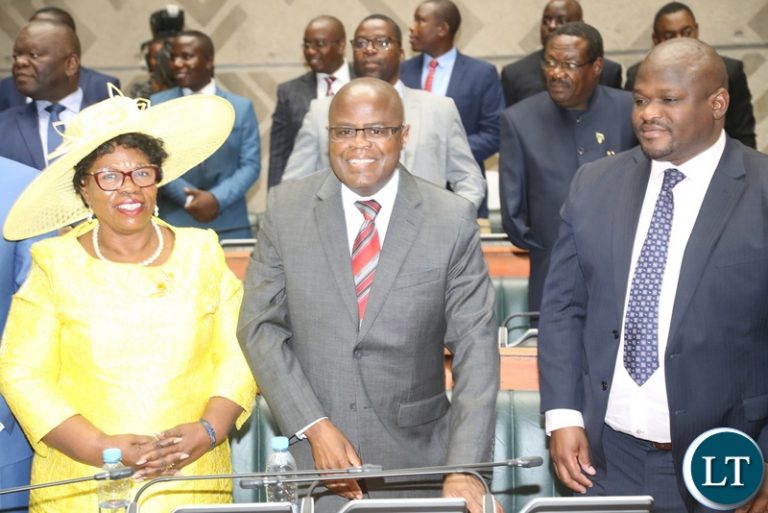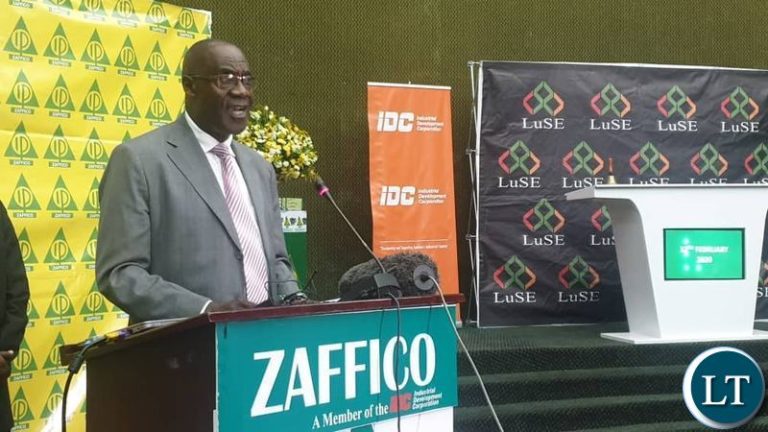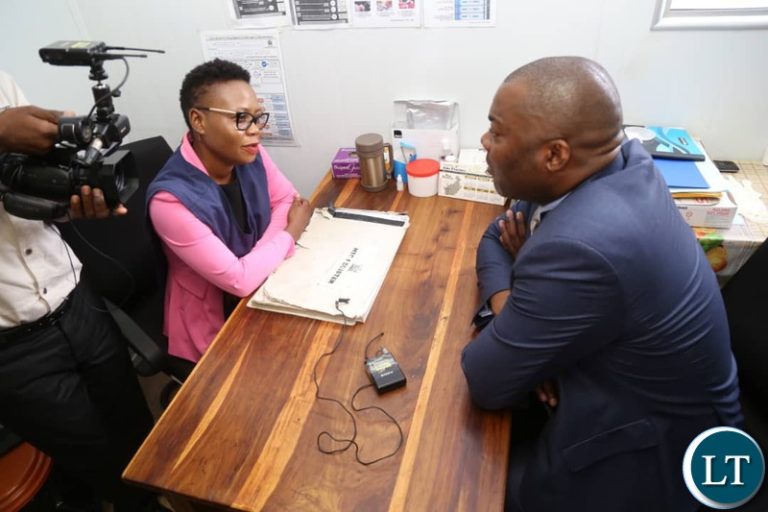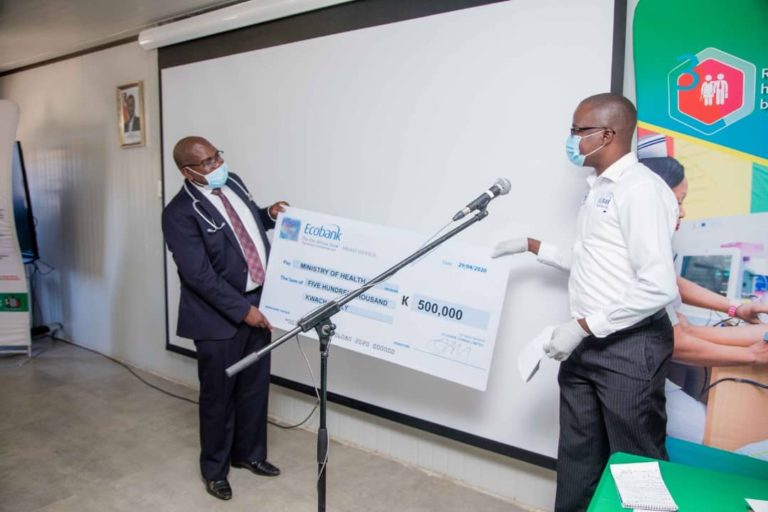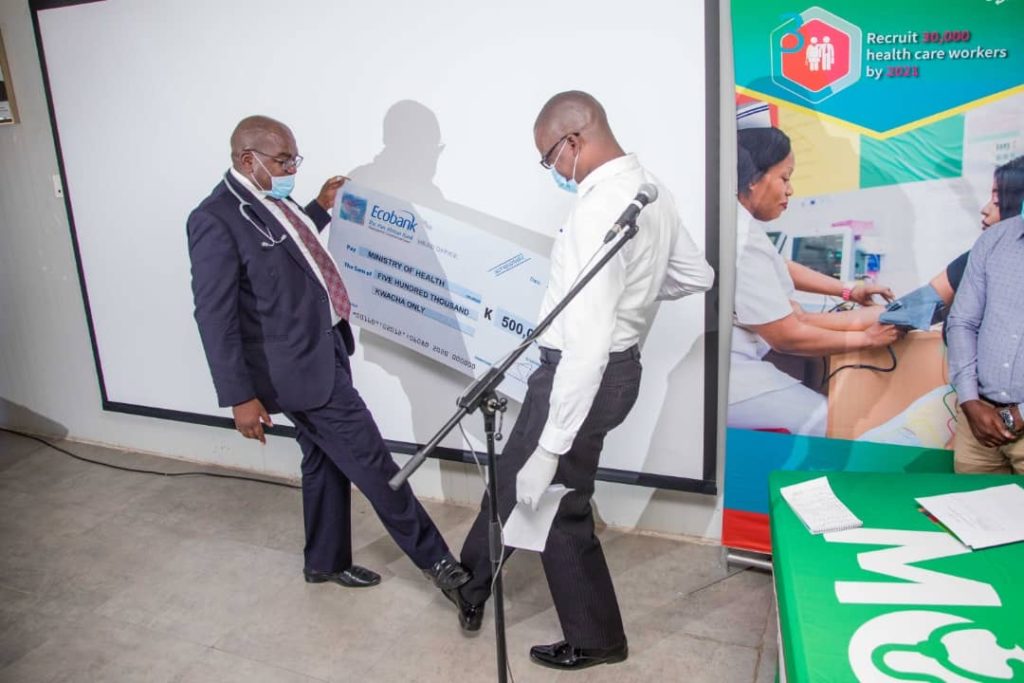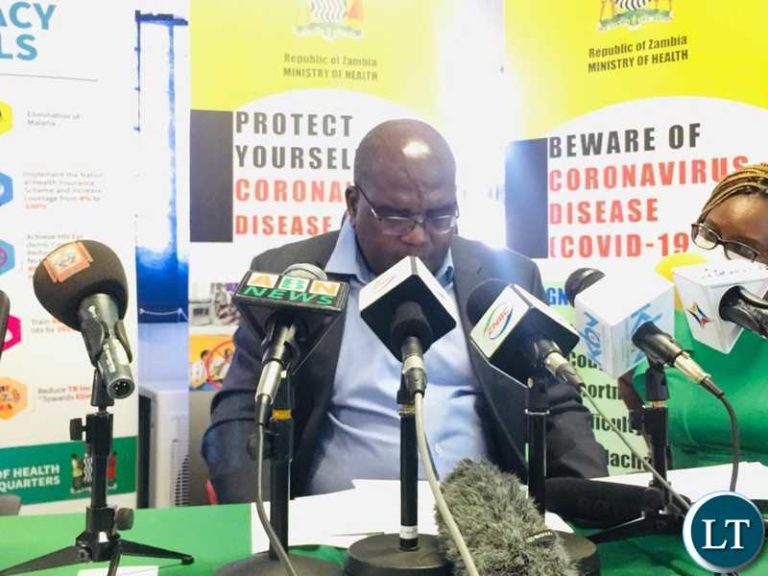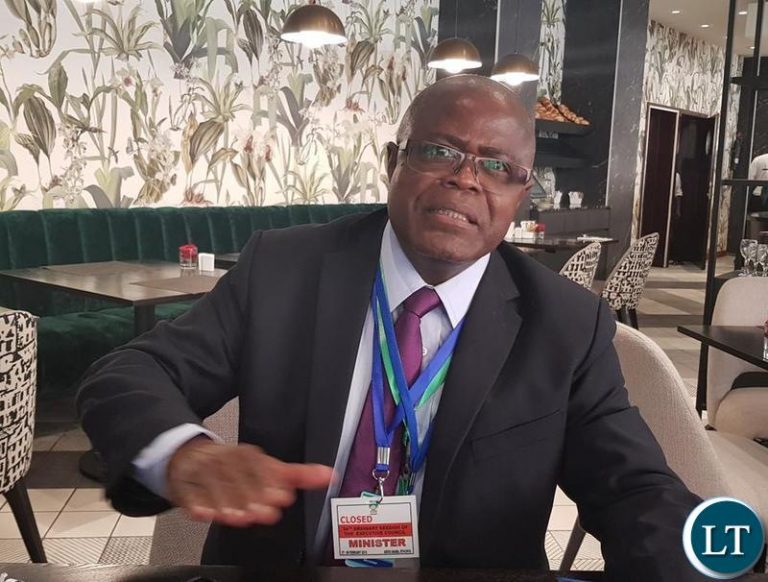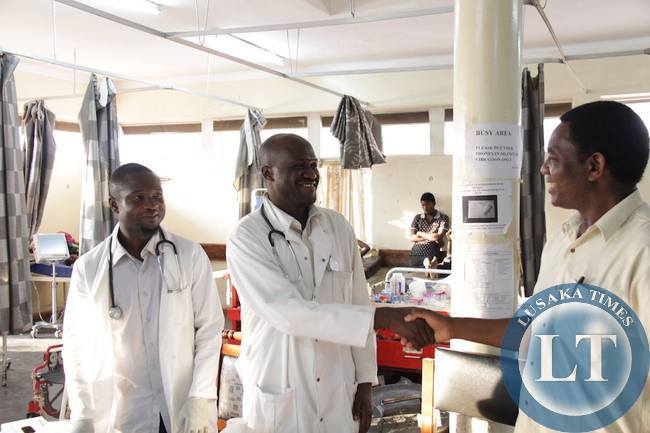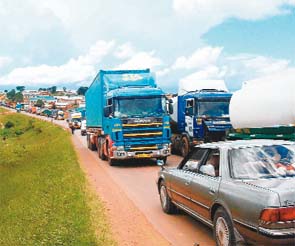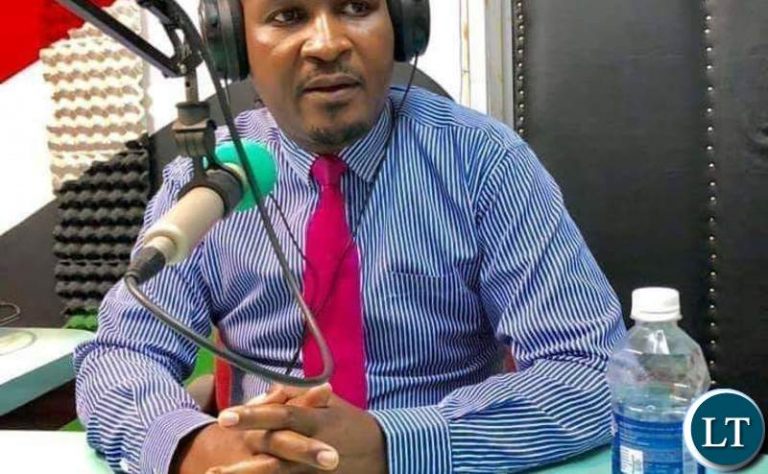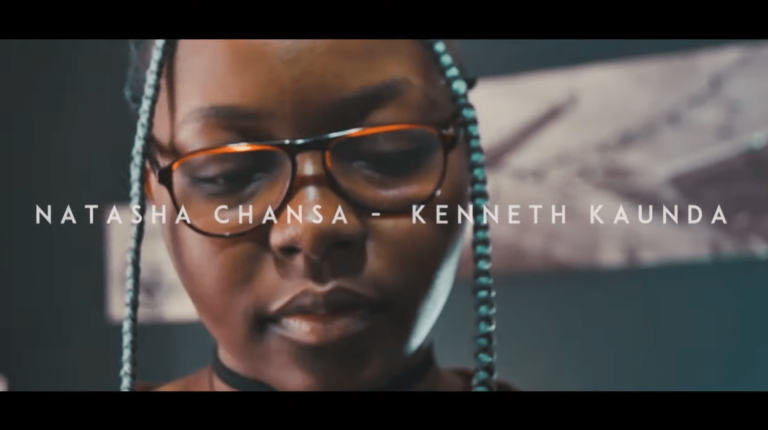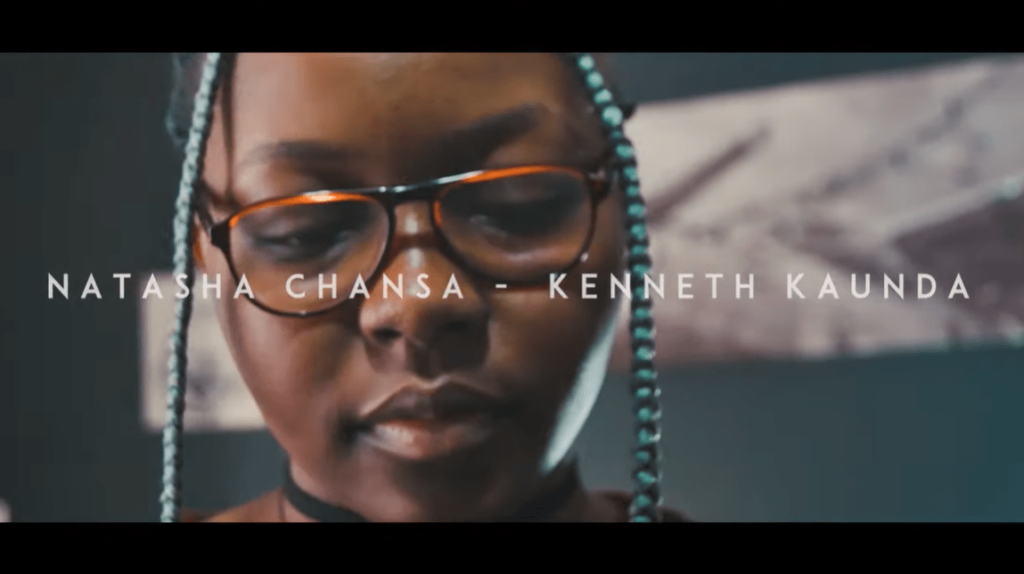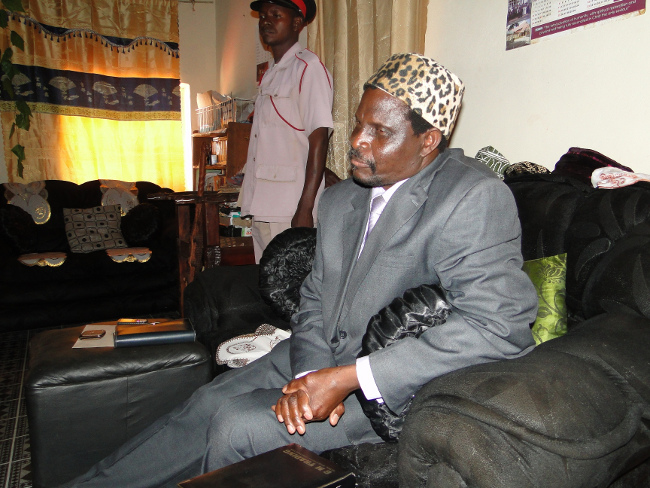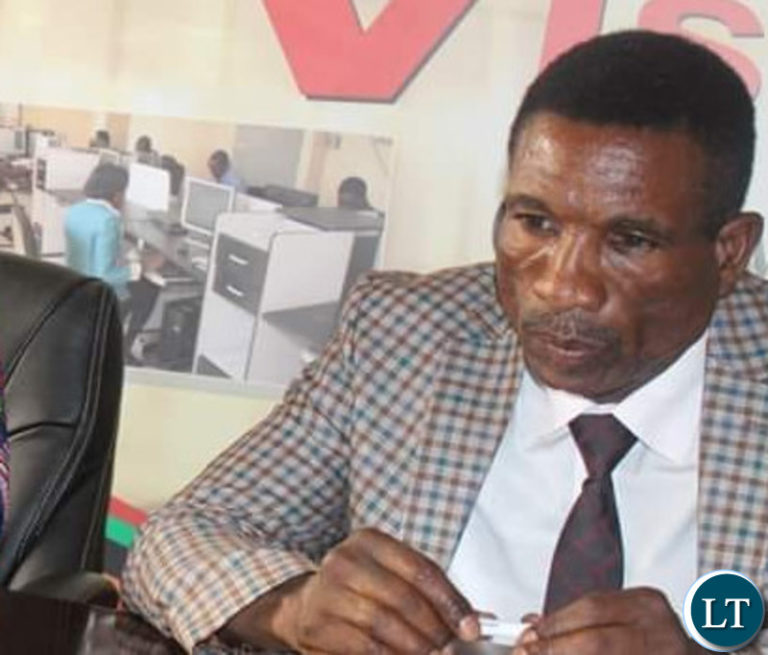Finance Minister Dr Bwalya Ng’andu has issued seven Statutory Instruments that actualise the many invectives that Government has provided to Businesses in view of the COVID-19 pandemic.
The Statutory Instruments issued with effect from Monday 27th April 2020 include SI Number 36 of 2020 aimed at assisting companies and businesses to manage their cash flows during this period by allowing input VAT claim on spare parts, lubricants and stationery.
Others are SI number 37 of 2020 which extends the list of medical supplies that are not subject to value added tax for an initial period of six months, SI number 38 of 2020 which suspends export duty payable on crocodile skins to free and SI number 39 of 2020 which suspends import duty payable on copper ores and concentrates to free.
According to a statement issued by Secretary to Treasury Fredson Yamba, the Minister also issued SI number 40 of 2020 which suspends export Customs duty payable on specified precious metals to free, SI number 41 of 2020 which will provide for suspension of excise duty on ethanol.
And Mr Yamba said the Minister has also issued SI number 42 of 2020 which suspends customs duty payable on specified medical supplies for an initial period of six months to support the fight against Covid-19.
In his third COVID-19 address to the nation, President Edgar Lungu said government decided to waive tax penalties and interest on outstanding tax liabilities resulting from the impact of Covid-19 to assist companies and businesses manage their cash flows during this period.
The President also said the Government extended the list of medical supplies that are not subject to import duty and value added tax for an initial period of six months to expedite the provision of medical related devices needed to support the fight against Covid-19.
In addition, Finance Dr Bwalya Ng’andu announced that the Government had removed the provisions of SI 90 relating to VAT claims, suspended export duty on crocodile skin, suspended import duties on concentrates in the mining sector, suspended export duty on precious metals and excise duty on ethanol.
Below is a full statement…
REPUBLIC OF ZAMBIA
www.mof.gov.zm
COMMENCEMENT OF NEW TAX MEASURES
Wednesday, 29 April 2020 – Following the assurance made by His Excellency the President, Dr Edgar Chagwa Lungu, during his last address to the nation on Friday 24th April 2020, that the Government had:
a) Decided to waive tax penalties and interest on outstanding tax liabilities resulting from the impact of Covid-19 to assist companies and businesses manage their cash flows during this period; and,
b) Extended the list of medical supplies that are not subject to import duty and value added tax for an initial period of six months to expedite the provision of medical related devices needed to support the fight against Covid-19.
The waiver on tax penalties and liabilities aimed at assisting companies and businesses manage their cash flows during this period of Covid-19, is being implemented by the Zambia Revenue Authority in accordance with the guidelines that the tax authority has since released to the public (check www.zra.org.zm).
In addition, following the pronouncements made by the Minister of Finance Dr Bwalya Ng’andu that the Government had decided to provide businesses with the following tax incentives:
a) Removal of the provisions of Statutory Instrument Number 90 relating to VAT claims on spare parts, lubricants and stationery to ease pressure on companies;
b) Suspension of export duty on crocodile skin;
c) Suspension of import duties on concentrates in the mining sector to ease pressure on the sector;
d) Suspension of export duty on precious metals; and,
e) Suspension of excise duty on ethanol for use in alcohol-based sanitisers and other medical related commodities.
Therefore, to facilitate the foregoing, the Minister of Finance Dr Bwalya Ng’andu has with effect from Monday 27th April 2020, issued the following Statutory Instruments:
-
- Statutory Instrument Number 36 of 2020 – The Value Added Tax (General) (Amendment) Regulations, 2020. Statutory Instrument No. 36 0f 2020 shall be read as one with the Value Added Tax Regulations, 2010, the Principal Regulation (in which regulation 9A has been revoked). The Statutory Instrument is aimed at assisting companies and businesses to manage their cash flows during this period by allowing input VAT claim on spare parts, lubricants and stationery.
- Statutory Instrument Number 37 of 2020 – The Value Added Tax (Zero Rating) (Amendment) Order, 2020. Statutory Instrument No. 37 0f 2020 shall be read as one with the Value Added (Zero Rating) Order, 2014, the Principal Order. This statutory instrument extends the list of medical supplies that are not subject to value added tax for an initial period of six months to expedite the provision of medical related devices needed to support the fight against Covid-19. Statutory Instrument No. 37 0f 2020 is deemed to have come into operation on 1st April 2020 and shall stand revoked on 30th September 2020.
- Statutory Instrument Number 38 of 2020 – The Customs and Excise (raw Hides Skins) (Export Duty) (Suspension) Order, 2020. Statutory Instrument No. 38 0f 2020, which suspends export duty payable on crocodile skins to free, is deemed to have come into operation on 1st April 2020 but shall cease to have effect on 31st December 2020.
- Statutory Instrument Number 39 of 2020 – The Customs and Excise (Copper Ores and Concentrates) (Import Duty) (Suspension) Regulations, 2020. Statutory Instrument No. 39 0f 2020, which suspends import duty payable on copper ores and concentrates to free, is deemed to have come into operation on 1st April 2020 but shall cease to have effect on 31st December 2020.
- Statutory Instrument Number 40 of 2020 – The Customs and Excise (Precious Metals) (Export Duty) (Suspension) Order, 2020. Statutory Instrument No. 40 0f 2020, which suspends export Customs duty payable on specified precious metals (Regulation 2) to free, is deemed to have come into operation on 30th March 2020 but shall cease to have effect on 31st December 2020.
- Statutory Instrument Number 41 of 2020 – The Customs and Excise (Ethyl Alcohol {Ethanol}) (Refunds, Rebates and Remissions) Regulations, 2020. In exercise of the powers contained in section 89 of the Customs and Excise Act, the Minister of Finance, via Statutory Instrument Number 41 of 2020, has made regulations which will be deemed to have come into operation on 1st March 2020 and will provide for suspension of excise duty on ethanol if solely used in the production of alcohol-based sanitisers and medical related commodities. For the avoidance of ambiguity, a manufacturer shall not sell or dispose of the goods on which excise duty has been suspended pursuant to these Regulations without the authorisation of the Commissioner General of Zambia Revenue Authority, as long as the authorised user presents supportive information relating to the manufacturing process of the sanitizer. Statutory Instrument Number 41 of 2020 also provides that the Commissioner General of Zambia Revenue Authority may revoke the authority granted to an authorised user if such user ceases to use ethanol in accordance with authorised terms or contravenes or fails to comply with specified regulations of the Customs and Excise Act.
- Statutory Instrument Number 42 of 2020 – The Customs and Excise (Customs Duty) (Suspension) (Medical Supplies) Regulations, 2020. Statutory Instrument Number 42 of 2020 suspends customs duty payable on specified medical supplies for an initial period of six months to support the fight against Covid-19. Statutory Instrument No. 42 0f 2020 is deemed to have come into operation on 1st April 2020 and shall stand revoked on 30th September 2020.
CONCLUSION
Yesterday, the Ministry of Finance announced the appointment of a new board for the Zambia Revenue Authority (see Note 2) following the expiry of tenure of service of the previous Board led by Ms. Chileshe Kapwepwe in December 2019. While thanking Ms. Kapwepwe and her Board for the great initiatives made by ZRA during their tenure, the Minister of Finance was emphatic on the need for the new ZRA Board to not only ensure that the provisions of the above listed Statutory Instruments are thoroughly communicated to all stakeholders but also effectively implemented in line with the aspirations of the people of Zambia, through the commitment made by His Excellency The President Dr Edgar Chagwa Lungu, for the Government to cushion the impact of Covid-19 on business and enterprise in Zambia through tax relief and incentives, among other measures.
Issued by:
Fredson K. Yamba
Secretary to the Treasury
MINISTRY OF FINANCE


